Libya
A decade after the death of the U.S. ambassador to Libya in an attack in Benghazi, Washington is trying to influence a political settlement in the still-chaotic country after pulling back.
On September 11, 2012, in the midst of the civil war in Libya, about 20 gunmen entered the diplomatic compound in Benghazi (east) before setting fire to the villa where the American ambassador Chris Stevens and an employee, Sean Smith, were staying. Both died of asphyxiation.
The attackers then fired mortars at a building used by the CIA intelligence agency in another part of Benghazi, killing two former members of the Navy Seals, an elite force.
The assault, carried out eleven years to the day after the 9/11 attacks, came as a shock to the United States: no American ambassador had been killed since 1979. Several branches of the U.S. government were accused of flaws and negligence, including the State Department, then headed by Hillary Clinton.
Two years after the attack and in the context of violent clashes in Tripoli, the United States, like many other countries, closed its embassy in Libya in 2014 and has not reopened it since.
This diplomatic vacuum and disengagement from the Libyan file under the administration of Donald Trump (2017-2021) have left the door open there for other actors, including Russia, Egypt, and the Emirates, supporters of the eastern camp, and Turkey, an ally of the Tripoli government.
- "Influence" -
But this has not prevented Washington from exercising, "repeatedly after 2012, a crucial influence on the Libyan file," decrypts for AFP the researcher and analyst Jalel Harchaoui, a specialist in Libya.
"There were rather positive moments like the agreement (on a Libyan unity government) concluded under the aegis of the UN in Skhirat (Morocco), in 2015, on which the Americans had worked a lot," he says.
But there were also "darker moments" when Donald Trump had supported the strongman of eastern Libya, Marshal Khalifa Haftar when he had just launched an offensive to conquer Tripoli in 2019, adds the expert.
Two Libyans captured by U.S. forces in Libya and tried in the United States, Mustafa al-Imam and Abu Khattala, were sentenced to 19 and 22 years in prison respectively in connection with the Benghazi attack.
The assault came almost a year after the fall of the regime of former dictator Muammar Gaddafi, which was swept away by an uprising supported by a controversial NATO-led international intervention, plunging the country into ongoing political and security chaos, with rival powers in the east and west.
While many chancelleries have returned to Tripoli in the past year as the situation on the ground has improved significantly, the U.S. Embassy still operates from Tunis and Ambassador Richard Norland makes only rare visits to the Libyan capital.
- Oil -
Two governments have been vying for power in Libya since March: one based in Tripoli and led by Abdelhamid Dbeibah since 2021 and another led by Fathi Bachagha and supported by the camp of Field Marshal Khalifa Haftar.
Fighting between rival militias in late August in Tripoli left 32 people dead and 159 injured, according to a Health Ministry report.
According to a European diplomatic source in Tripoli, keeping Libyan oil production safe from political turmoil appears to be the main U.S. concern at the moment, even though Norland has also consistently called for elections in the country, as the postponement of polls scheduled for December 2021 has deepened the crisis between rival camps.
Mr. Norland warned in June that the rival protagonists in Libya should not use oil "as a weapon" in their political quarrels.
Oil production in Libya reached 1.2 million barrels per day in late July, its daily average before an oil blockade imposed between mid-April and mid-July by groups close to the eastern camp.
"It is incumbent on all external and internal actors to move toward presidential and parliamentary elections as soon as possible," Norland was quoted by the U.S. Embassy as saying Wednesday.



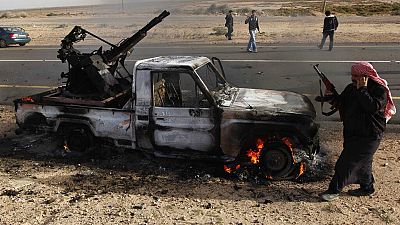

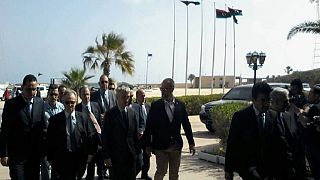
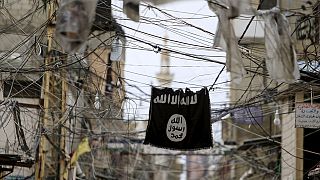
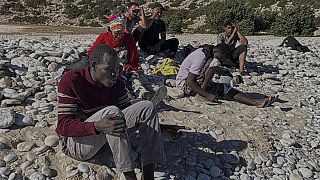
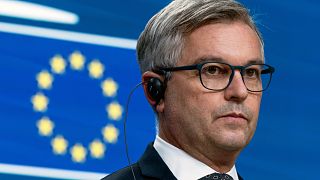




02:03
Muhammadu Buhari's legacy: higlight of his presidential tenure
01:01
Kenya: Visa-free travel now available for many African and Caribbean countries
Go to video
Paraguayan town celebrates vibrant Kamba Ra'anga festival with masks, fire and tradition
01:47
Chinese city of Xuchang is world's biggest producer of wigs
01:15
U.S. considers adding more African countries to travel ban
01:00
Renewed calls to end plastic pollution on World Environment Day